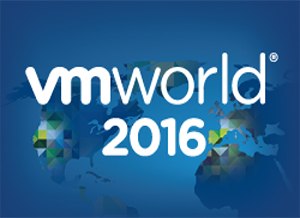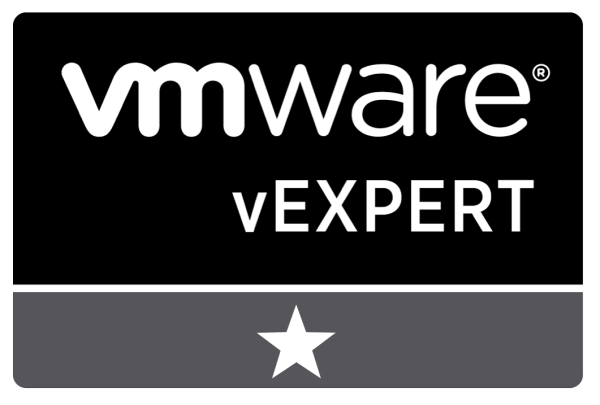VMworld 2016 - vExpert Party

In this post, I provide a recap from the VMware vExpert party @ VMworld 2016 in Barcelona
Written by Christopher Lewis on October 21, 2016 .
VMware
VMworld
VMworld 2016
Barcelona
vExpert
Written by Christopher Lewis on October 21, 2016 .
VMworld 2016 - Day 2

In this post, I provide a Day 2 Recap from my experiences of VMworld 2016 in Barcelona
Written by Christopher Lewis on October 20, 2016 .
VMware
VMworld
VMworld 2016
Barcelona
Written by Christopher Lewis on October 20, 2016 .
VMworld 2016 - Day 1

In this post, I provide a Day 1 Recap from my experiences of VMworld 2016 in Barcelona
Written by Christopher Lewis on October 18, 2016 .
VMware
VMworld
VMworld 2016
Barcelona
Written by Christopher Lewis on October 18, 2016 .
VMworld 2016 - Day 0 - Partner Exchange

In this post, I provide a Day 0 Recap from my experiences of VMworld 2016 in Barcelona
Written by Christopher Lewis on October 17, 2016 .
VMware
VMworld
VMworld 2016
Barcelona
Written by Christopher Lewis on October 17, 2016 .
My Expectations - VMworld 2016

In this post I highlight what I am looking forward to on my first VMworld event in Barcelona!
Written by Christopher Lewis on October 7, 2016 .
VMware
VMworld
VMworld 2016
Barcelona
Written by Christopher Lewis on October 7, 2016 .
HOWTO: Reset WAF to Zero by attending VMworld Barcelona 2016

In this post I discuss going to VMworld 2016 Barcelona! Will I see you there?
Written by Christopher Lewis on September 2, 2016 .
VMware
VMworld
VMworld 2016
Written by Christopher Lewis on September 2, 2016 .
VMware vRealize Automation 7.1 Released

Release notes and where to get them!
Written by Christopher Lewis on August 23, 2016 .
VMware
vRealize Automation
Written by Christopher Lewis on August 23, 2016 .
Blog Categories:
active directory 6
aria automation 9
aria operations 2
aws 2
certificate authority 5
certificates 5
certification 91
general 9
home lab 2
microsoft 7
nsx 45
nsx v 41
powercli 8
powershell 6
vcap 48
vcap6 2
vcenter 4
vcf 2
vcix 2
vexpert 9
vmug 5
vmware 99+
vmware aria automation 9
vmware aria operations 5
vmware cloud 3
vmware explore 2
vmware identity manager 2
vmworld 36
vrealize automation 80
vrealize business 2
vrealize operations manager 5
vrealize orchestrator 13
vrealize suite 14
vrealize suite lifecycle manager 20
vsan 5
vsphere 9
windows 6
Top Tags:
active directory 6
api 18
barcelona 24
certificates 11
certification 7
howto 33
microsoft 7
multi tenancy 9
nsx v 43
platform services controller 8
powercli 8
powershell 7
psc 6
vcap 9
vcap6 45
vcap6 cma 48
vcap6 nv 37
vcix6 nv 36
vexpert 19
vmug 8
vmware 99+
vmware aria 12
vmware aria automation 9
vmworld 35
vmworld 2016 13
vmworld 2017 9
vra 13
vrealize automation 74
vrealize operations 8
vrealize orchestrator 21
vrealize suite lifecycle manager 11
vrslcm 20
vsan 7
vsphere 12



